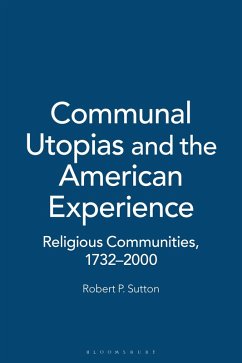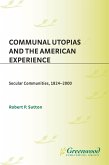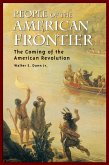American communalism is not a disjointed, erratic, almost ephemeral part of our past, but an on-going, essential part of American history. This important study begins with an examination of America's first religious utopia at Ephrata, near Lancaster, Pennsylvania, in 1732 and traces successive utopian experiments in the United States through the following centuries. The author demonstrates that the utopian communal story is an integral facet of the Puritan concept of America as a city upon a hill and a beacon light for the world where the perfect society could be built and where it could flourish. After discussing the Ephrata Cloister (1724-1812), the author turns to the dozen or so Shaker communities that spread utopian communalism from New England to the Ohio Valley frontier in the antebellum years. Next, he examines the various Separatists, as well as the Oneida Community. He traces the history of the Hutterite utopias from Russia to the Great Plains and Canada between the Civil War and World War I. In a chapter on California counter culture communities, he analyzes the Theosophist communes at Pint Loma and Temple Home. Finally, he discusses modern religious utopias ranging from the Koreshian Unity at Estero, Florida, to Zion City near Chicago, Dorothy Day's Catholic Worker Movement, the Sufi Utopia in the Berkshire Mountains, and the Pandanaram Settlement in Indiana.









